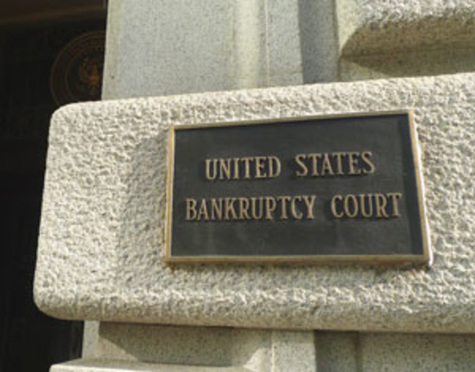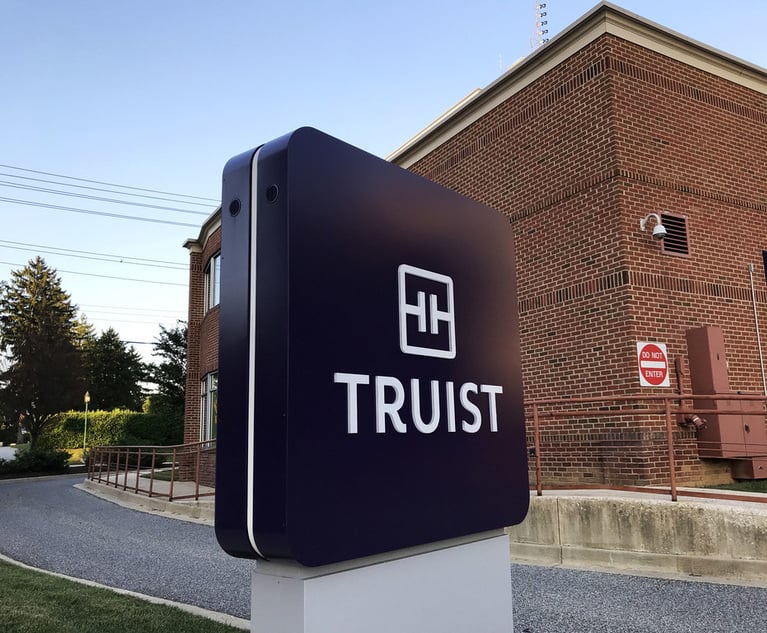First Circuit Further Limits Remedies Following Trademark License Rejection
Section 365(a) of the Bankruptcy Code is a powerful tool which enables a debtor to reject certain contracts it finds unnecessary or burdensome to its reorganization.
February 08, 2018 at 04:32 PM
7 minute read

Generally, under Section 365(g), rejection is treated as a breach of contract immediately prior to the petition date, often leaving the counterparty with little more than a general unsecured damages claim. An exception to this rule exists when the debtor, as licensor of “intellectual property,” rejects, in which case Section 365(n) permits the nondebtor licensee to retain its contractual rights to use the intellectual property for the duration of the agreement. Curiously, however, Congress failed to specifically include trademarks within the Section 101(35A) definition of “intellectual property,” resulting in a split among courts over the proper treatment of a rejected trademark license. Recently widening the split and adding additional gloss is a First Circuit case of first impression, which held that upon rejection of a trademark license, the nondebtor licensee lost all post-rejection rights to use such trademarks in Mission Product Holdings v. Tempnology (In re Tempnology), 2018 U.S. App. LEXIS 870 (1st Cir. Jan. 12, 2018).
In Mission Products, the debtor produced specialty items, including towels and socks, that utilized its patented technology to remain at cooler temperatures during exercise. The debtor also owned a portfolio of registered and pending trademarks, such as “Coolcore” and “Dr. Cool.” About three years prior to bankruptcy, the debtor entered into a co-marketing and distribution agreement with Mission Products Holdings. The agreement granted Mission: distribution rights; a nonexclusive intellectual property license, exclusive of trademarks; and a nonexclusive limited trademark license. The trademark license was a “nonexclusive, no-transferable, limited license for the term of the agreement to use the debtor's trademark and logo … for the limited purpose of performing its obligations … exercising its rights and promoting the purposes of the agreement.” Mission's trademark rights extended through July 1, 2016.
On Sept. 1, 2015, the debtor filed Chapter 11 and immediately moved to reject the Mission agreement pursuant to Section 365(a) of the Bankruptcy Code. Not surprisingly, Mission argued that Section 365(n) permitted it to retain the licensed trademark rights. The Bankruptcy Court, however, ruled in favor of the debtor finding that Section 365(n) only applies to “intellectual property” as specifically defined in the Bankruptcy Code. Mission immediately appealed to the bankruptcy appellate panel for the First Circuit which reversed the lower court. Interestingly, the BAP held that even though trademarks are not protected under Section 365(n), because rejection operates solely as a breach of contract and not necessarily termination, the licensee may still possess rights under the terms of the trademark license and nonbankruptcy law.
The debtor appealed the BAP's decision to the First Circuit on the issue of whether Mission retained rights to use the debtor's trademarks following rejection under Section 365(n) or otherwise. With respect to the Section 365(n) argument, the First Circuit determined that Section 365(n) clearly did not exempt trademark licenses from rejection since trademarks were not included in the definition of “intellectual property.” The First Circuit noted that the Senate report on Section 365(n) provided that Congress was “postponing action on trademark licenses 'to allow the development of equitable treatment of this situation by bankruptcy courts.'” The First Circuit agreed with the Seventh Circuit's view that judges “cannot override” the Bankruptcy Code on equitable grounds when the code itself does not direct the court to consider equity.
Mission's alternative argument for why it continued to have post-rejection rights under the trademark license was that, “under Section 365(g), Section 365(a) rejection constitutes a breach of contract that frees the estate from the obligation to perform,” but such rejection does not automatically result in the termination of all of the non-debtor contracting party's rights. This argument was the basis of the Seventh Circuit's decision in Sunbeam Products v. Chicago American Manufacturing, 686 F.3d 372 (7th Cir. 2012), where that court held that a trademark licensee may continue to have rights under its license post-rejection. The First Circuit here, however, determined that rejection does not “vaporize” a party's contractual rights, but rather “converts the rights into a pre-petition claim for damages.” The First Circuit went on to observe that the purpose underlying rejection was “to release the debtor's estate from burdensome obligations that can impede a successful reorganization.” While Sunbeam is largely based on the “unstated premise” that a debtor is freed from continuing performance under a rejected trademark license even if the licensee has post-rejection use rights, the First Circuit concluded that this premise does not hold up to the realities of a trademark licensor's duties. Specifically, a trademark owner has a duty to monitor and control “the quality of the goods sold to the public under cover of the trademark,” and a trademark owner's failure to adequately monitor and control can result in the abandonment of their trademark. Thus, the First Circuit found that if a licensee was permitted to continue to use a trademark post-rejection, the debtor would be forced to choose between monitoring the trademark's use (i.e., performance of its executory obligations under the supposedly rejected license) or “risking the permanent loss of its trademarks.”
In responding to Judge Juan Torruella's dissent, the First Circuit observed that the dissent's equitable approach elevated the Senate report's “equitable treatment” language to statutory authority, whereas when Congress intended to grant equitable authority, it explicitly provided so in the Bankruptcy Code. Moreover, it was not workable to attempt to craft an equitable remedy where when some debtors' burdens to monitor and control trademark uses under rejected licenses were minimal, the licensees should be permitted to retain their rights. The First Circuit determined that it would be difficult to ascertain such a burden during the bankruptcy as it would be dependent on the licensee's future actions. In comparison, the First Circuit found that the burden on counterparties to have “trademark rights converted to pre-petition damages claims” was lower—for instance, if such licensees had continuing patent rights, they would still be able to make and sell products, just not under the licensor's trademark. The First Circuit concluded this approach also promoted the public interest by ensuring consumers know the origin of purchased goods. Therefore, the First Circuit categorically held that “trademark licenses are unprotected from court-approved rejection.”
On its face, the Mission Products decision involves straight-forward statutory construction. Specifically, since trademarks are not contained within the definition of “intellectual property” under Section 101(35A), they do not get the protection of Section 365(n). While there may be courts which disagree with that decision, it remains highly defensible since Congress clearly indicated the issue remained open for further consideration. However, unlike the BAP, the First Circuit went further and effectively cut off any rights which might still exist under the license or nonbankruptcy law. This aspect of the decision could impact not only trademark licenses but other types of rejected contracts as well where some courts have recognized that rejection is nothing more than a breach of contract deemed to have occurred immediately prior to the bankruptcy filing, with whatever rights the non-breaching party may have under nonbankruptcy law remaining intact. It should be interesting to see how this decision is applied by other courts and in other circumstances.
Francis J. Lawall, a partner in the Philadelphia office of Pepper Hamilton, concentrates his practice on national bankruptcy matters and workouts, including the representation of major energy and health care companies in bankruptcy proceedings and general litigation throughout the United States.
Marcy J. McLaughlin is an associate in the corporate restructuring and bankruptcy practice group at the firm in the Wilmington, Delaware office.
This content has been archived. It is available through our partners, LexisNexis® and Bloomberg Law.
To view this content, please continue to their sites.
Not a Lexis Subscriber?
Subscribe Now
Not a Bloomberg Law Subscriber?
Subscribe Now
NOT FOR REPRINT
© 2025 ALM Global, LLC, All Rights Reserved. Request academic re-use from www.copyright.com. All other uses, submit a request to [email protected]. For more information visit Asset & Logo Licensing.
You Might Like
View All
Federal Judge Allows Elderly Woman's Consumer Protection Suit to Proceed Against Citizens Bank
5 minute read
Dilworth Paxson Launches Erie Office With Longtime Local Banking Attorney
4 minute read
Stradley Ronon Bolsters Investment Management Practice With Vanguard Hire
4 minute readTrending Stories
Who Got The Work
J. Brugh Lower of Gibbons has entered an appearance for industrial equipment supplier Devco Corporation in a pending trademark infringement lawsuit. The suit, accusing the defendant of selling knock-off Graco products, was filed Dec. 18 in New Jersey District Court by Rivkin Radler on behalf of Graco Inc. and Graco Minnesota. The case, assigned to U.S. District Judge Zahid N. Quraishi, is 3:24-cv-11294, Graco Inc. et al v. Devco Corporation.
Who Got The Work
Rebecca Maller-Stein and Kent A. Yalowitz of Arnold & Porter Kaye Scholer have entered their appearances for Hanaco Venture Capital and its executives, Lior Prosor and David Frankel, in a pending securities lawsuit. The action, filed on Dec. 24 in New York Southern District Court by Zell, Aron & Co. on behalf of Goldeneye Advisors, accuses the defendants of negligently and fraudulently managing the plaintiff's $1 million investment. The case, assigned to U.S. District Judge Vernon S. Broderick, is 1:24-cv-09918, Goldeneye Advisors, LLC v. Hanaco Venture Capital, Ltd. et al.
Who Got The Work
Attorneys from A&O Shearman has stepped in as defense counsel for Toronto-Dominion Bank and other defendants in a pending securities class action. The suit, filed Dec. 11 in New York Southern District Court by Bleichmar Fonti & Auld, accuses the defendants of concealing the bank's 'pervasive' deficiencies in regards to its compliance with the Bank Secrecy Act and the quality of its anti-money laundering controls. The case, assigned to U.S. District Judge Arun Subramanian, is 1:24-cv-09445, Gonzalez v. The Toronto-Dominion Bank et al.
Who Got The Work
Crown Castle International, a Pennsylvania company providing shared communications infrastructure, has turned to Luke D. Wolf of Gordon Rees Scully Mansukhani to fend off a pending breach-of-contract lawsuit. The court action, filed Nov. 25 in Michigan Eastern District Court by Hooper Hathaway PC on behalf of The Town Residences LLC, accuses Crown Castle of failing to transfer approximately $30,000 in utility payments from T-Mobile in breach of a roof-top lease and assignment agreement. The case, assigned to U.S. District Judge Susan K. Declercq, is 2:24-cv-13131, The Town Residences LLC v. T-Mobile US, Inc. et al.
Who Got The Work
Wilfred P. Coronato and Daniel M. Schwartz of McCarter & English have stepped in as defense counsel to Electrolux Home Products Inc. in a pending product liability lawsuit. The court action, filed Nov. 26 in New York Eastern District Court by Poulos Lopiccolo PC and Nagel Rice LLP on behalf of David Stern, alleges that the defendant's refrigerators’ drawers and shelving repeatedly break and fall apart within months after purchase. The case, assigned to U.S. District Judge Joan M. Azrack, is 2:24-cv-08204, Stern v. Electrolux Home Products, Inc.
Featured Firms
Law Offices of Gary Martin Hays & Associates, P.C.
(470) 294-1674
Law Offices of Mark E. Salomone
(857) 444-6468
Smith & Hassler
(713) 739-1250






